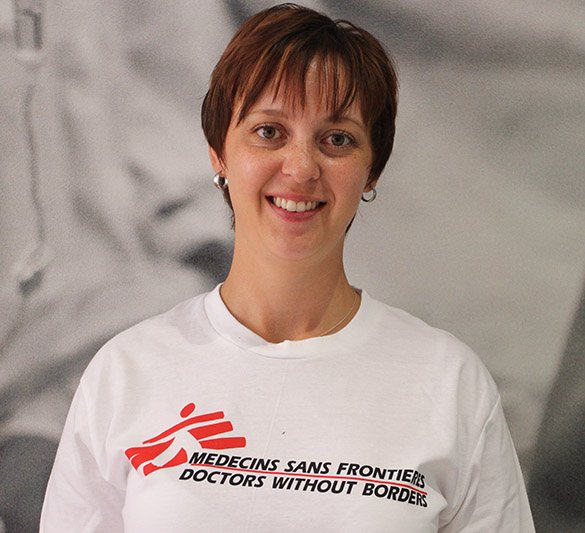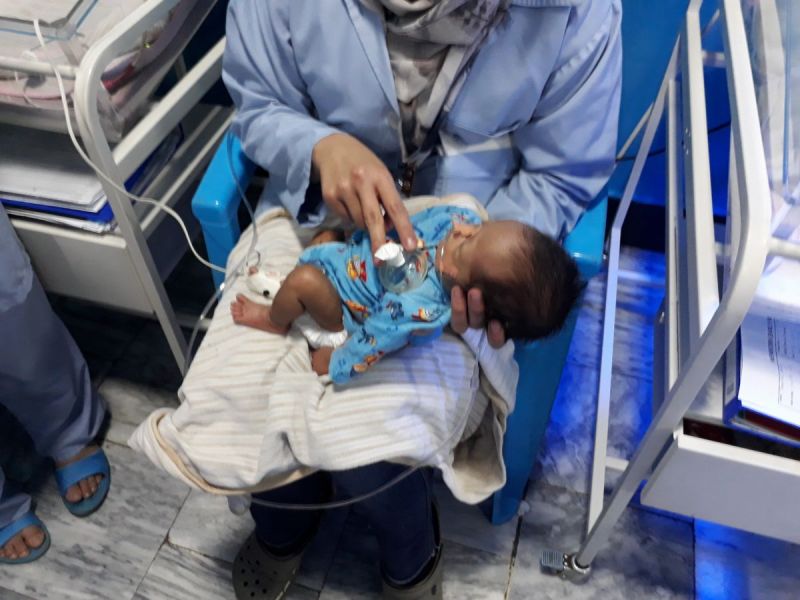A South African neonatal nurse recently returned from her first MSF assignment in Afghanistan. She shares the story of a premature baby who the team nursed back to health:

There is a lot that can be said about firsts, especially if your very first assignment with Doctors Without Borders (MSF) is in Afghanistan.
In the 4 weeks I worked at the hospital in Dasht-e-Barchi I learned a lot and did as much as I could.
There is one story I want to share with you. This story is only one example of how MSF and the dedicated Afghan staff play a major role in sending babies home to their families and – who knows – maybe even saving a future astronaut or president or dancer, ensuring that there is a future that can be shaped and coloured in any possible way.
MSF saves lives and that is something that I am honoured to be a part of!
Imagine yourself in this situation…
''I’m a little girl, born too early for my time at 32 weeks. I heard the doctors telling this new foreign lady (a nurse called Betina) that I have been through a lot.
I had difficulty breathing on my own and suffered an infection which the medical team treated with a few different courses of antibiotics.
They almost thought that my bowels were dying when my tummy swelled up and I couldn’t eat. And that’s just to get us started in my story of survival. I thought being a baby was much easier than this!
“Today was the day I was meant to be born after spending 39 weeks in my mom’s tummy, but instead my mom and two of my caretakers have been taking turns to feed me, change me, hold me and sit in a chair in front of me for 53 days.
“I depend on oxygen supply to help me breathe and that’s the biggest reason why I can’t go home yet. Earlier this week I took my first trip outside the hospital, 50m down the street to have an X-ray taken of my chest.
The people from MSF paid US$1 for the procedure (a cost my mum wouldn’t be able to afford). The air was cold and the trolley ride a bit shaky on the way there and back – but for the first time, I got to breathe in different air.
The air in Kabul is very polluted, that doesn't make my breathing any easier.
“My doctor said that, after looking at my X-ray, my chest and heart look fine. All they can do now is wait and maybe try some chest physiotherapy.
The foreign lady had the idea of using a mask for ventilation as a percussion device (Percussion is the method physios use to loosen the secretions in the lungs and improve breathing).

She demonstrated on me to the other nurses. Oh, it felt so nice! I could breathe better and after two days of physiotherapy, I could breathe without my oxygen supply for almost 5 hours at a time! I was getting stronger…
“To you, physiotherapy might sound easy, but my body is so small that it really uses all of my energy and strength just to practice breathing – something you do effortlessly and unconsciously while reading my story.
“After three sessions of physiotherapy I was able to go a whole day without oxygen, I’m getting there, slowly but surely, and my family will be so happy to take me home soon.
I might not know much as I am so small, but life should not be taken for granted.
“After five session of chest physio I had no need to go back on oxygen again and my doctor decided that I could finally go home. My family and I were so excited! And it was all thanks to the hard work of the MSF staff and the loving care of my mum.”
Find out more about MSF's work in Afghanistan.
